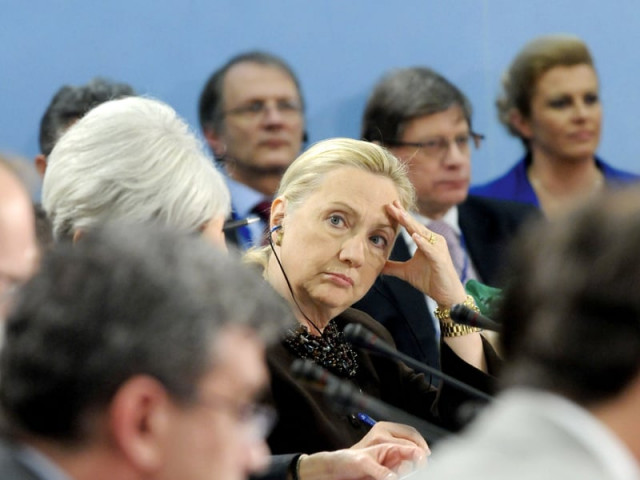As blockade lingers, NATO meets to unclog alternatives
Drivers, cleaners bemoan employment loss; tribesmen along the route relieved.

As blockade lingers, NATO meets to unclog alternatives
As the blockade of Nato supply routes in Pakistan entered its 13th day on Wednesday, Nato allies gathered in Brussels to discuss increasing tensions with Pakistan, and the host of the force’s alternative supply route, Russia.
While tensions had been simmering with Russia over Nato’s missile shield project in Europe, barbs were exchanged on Tuesday after US Secretary of State Hillary Clinton voiced “serious concerns” about recent Russian parliamentary elections and called for allegations of fraud and vote-rigging to be investigated.
Despite lingering suspicions, Russia has allowed the alliance to use its territory to send vital supplies to troops in Afghanistan. The transit route became all the more important after Pakistan blocked the southern supply route on November 26, in retaliation to the cross-border strike that killed 24 Pakistani troops in Mohmand Agency.
The political administration of Khyber Agency subsequently began turning away Nato oil tankers and containers from Takhta Baig check post. While the move was hailed as an assertion of sovereignty, it has led to other, unintended consequences, such as leaving thousands of daily wage workers without a source of income.
Left high and dry
Talking to The Express Tribune, All Pakistan Tankers Association (KP chapter) president Haji Ashraf Khalil said 1,200 Nato containers and oil tankers had been parked permanently at various petrol pumps and hotels along a 300 kilometre stretch between Talagang and Chowk Munda.
“Two drivers and two cleaners run a single container. Even if 4,800 people who wholly depend upon the passage of Nato supply are left jobless, what are their families supposed to do?” Khalil asked rhetorically.
He went on to add that the blockade had not only resulted in unemployment but had also led to losses for the association with expenditures running up to Rs0.2 million a day since the supply had been suspended.
“We have been bearing Rs0.2 million loss a day. We pay drivers and cleaners. We bribe the police, pay for the security of the containers and oil tankers, and even to militant elements who threaten us,” Khalil said, adding that they had been paying Rs0.42 million in taxes to the government and they wouldn’t let a single container leave for Afghanistan until they had been compensated.
Sigh of relief
On the other hand, businessman at Karkhano market in Jamrud and tribesman living along the Torkham-Jalalabad route breathed a sigh of relief when Nato supplies were suspended.
Talking to The Express Tribune, Wali Khan Afridi, a crockery merchant at Karkahno market said incidents of bomb blasts and torching Nato containers had become a routine headache for all businessmen and residents.
“These containers and oil tankers used to stay at Karkhano market and whenever containers were attacked, our shops were also gutted in the aftermath,” Afridi said.
[With additional input from AFP]
Published in The Express Tribune, December 8th, 2011.



















COMMENTS
Comments are moderated and generally will be posted if they are on-topic and not abusive.
For more information, please see our Comments FAQ